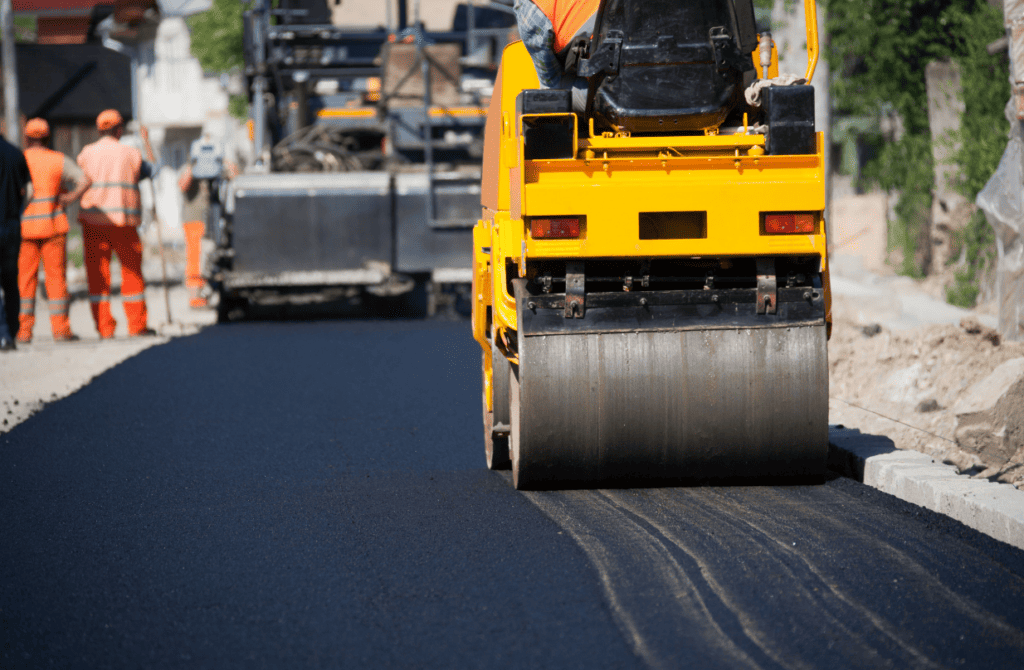Asphalt paving has long been a cornerstone of road construction and infrastructure development. Over the years, contractors and engineers have continuously innovated asphalt paving technology to enhance the durability and performance of asphalt surfaces.
Table of Contents
Innovations in asphalt paving technology not only benefit the construction industry but also improve safety and comfort for drivers and pedestrians. Today, we'll explore some of the latest advancements in asphalt paving technology and how they contribute to better roads and surfaces.

1. High-Performance Asphalt Mixtures
One of the significant advancements in asphalt paving technology is the development of high-performance asphalt mixtures. These mixtures incorporate specialized additives and modifiers that enhance the properties of asphalt, such as durability, flexibility, and resistance to cracking and rutting.
Contractors are increasingly using polymer-modified asphalt and rubberized asphalt to improve pavement performance, particularly in high-traffic areas and regions with extreme weather conditions.

Polymer-modified asphalt blends polymers like styrene-butadiene-styrene (SBS) or styrene-butadiene rubber (SBR) with traditional asphalt binders.
These polymers improve the elasticity and resistance to deformation, making the pavement more durable and long-lasting. Rubberized asphalt, made from recycled rubber tires, not only provides excellent performance but also contributes to sustainability by reducing waste.
2. Warm Mix Asphalt (WMA)
Warm Mix Asphalt (WMA) is another innovative technology that has gained popularity in recent years. Unlike traditional hot mix asphalt, which is produced at high temperatures, WMA is manufactured at lower temperatures, typically between 50°C to 100°C lower than hot mix asphalt.
This reduced temperature not only saves energy but also reduces emissions and fumes during production, making it more environmentally friendly.
WMA offers several benefits, including improved workability, extended paving season in cold climates, and reduced aging of the asphalt binder. Contractors find WMA easier to compact and handle, resulting in smoother and more uniform pavement surfaces.
Additionally, WMA can be used with recycled asphalt pavement (RAP), further enhancing sustainability in asphalt paving projects.
3. Intelligent Compaction Systems
Advancements in construction equipment and technology have led to the adoption of Intelligent Compaction (IC) systems in asphalt paving projects. IC systems utilize sensors and real-time data analysis to monitor and optimize the compaction process during pavement construction.
These systems provide contractors with valuable insights into the density and uniformity of the asphalt layers, ensuring higher quality and longer-lasting pavements.
IC systems measure factors like temperature, stiffness, and moisture content of the asphalt mix during compaction. Contractors can adjust the compaction parameters in real time, ensuring that the pavement meets design specifications and performance requirements.
By achieving optimal compaction levels, IC systems contribute to improved durability, reduced maintenance costs, and enhanced overall pavement performance.
4. Porous Asphalt
Porous asphalt is a specialized type of asphalt pavement designed to allow water to pass through the surface and infiltrate into the underlying soil or drainage system.
This innovative technology helps mitigate stormwater runoff, reduce flooding, and improve water quality by filtering pollutants and contaminants. Porous asphalt is commonly used in parking lots, driveways, and low-traffic roadways where stormwater management is a priority.
An asphalt paving contractor installs porous asphalt by using a permeable mix design that includes larger aggregate particles and reduced asphalt binder content. This porous structure allows rainwater to percolate through the pavement, reducing surface runoff and minimizing erosion.
By promoting natural groundwater recharge and reducing the burden on stormwater infrastructure, porous asphalt contributes to sustainable urban development and environmental stewardship.
5. Recycled Asphalt Pavement (RAP) and Reclaimed Asphalt Pavement (RAP)
The use of Recycled Asphalt Pavement (RAP) and Reclaimed Asphalt Pavement (RAP) has become standard practice in asphalt paving projects. RAP refers to the recycled asphalt material obtained from milling and removing old asphalt pavements.
Contractors can incorporate RAP into new asphalt mixtures, reducing the need for virgin aggregates and asphalt binders. RAP not only conserves natural resources but also offers economic and environmental benefits.
It helps reduce construction costs, lower energy consumption during production, and decrease greenhouse gas emissions. Furthermore, RAP contributes to the circular economy by recycling and reusing existing materials, making asphalt paving more sustainable and resource-efficient.

Final Words About Asphalt Paving Technology
Innovations in asphalt paving technology have revolutionized the way contractors approach road construction and pavement maintenance.
High-performance asphalt mixtures, Warm Mix Asphalt (WMA), Intelligent Compaction (IC) systems, porous asphalt, and recycled materials like RAP have collectively improved the durability, performance, and sustainability of asphalt surfaces.
These advancements not only benefit infrastructure development but also promote environmental stewardship and enhance the quality of transportation networks for communities across the country.


